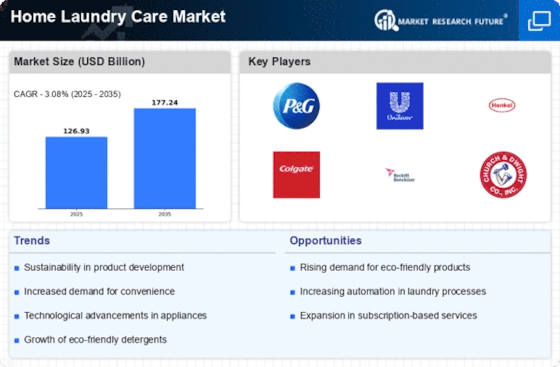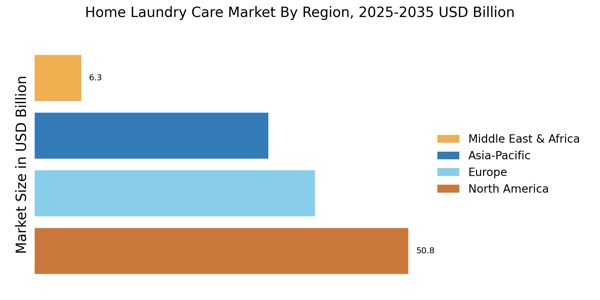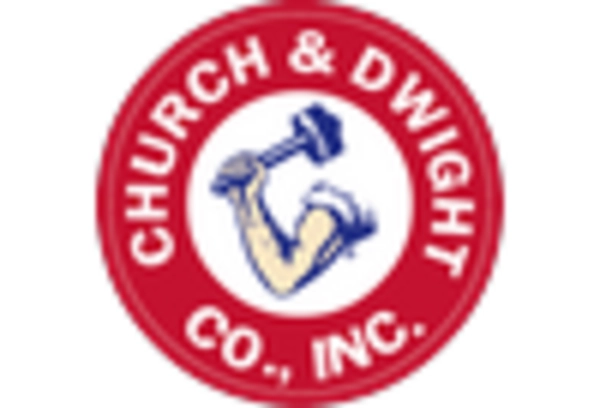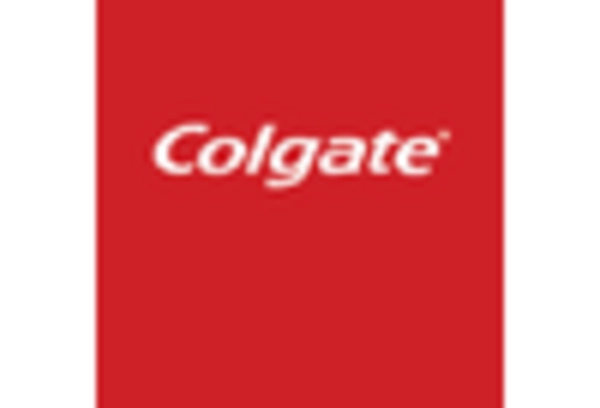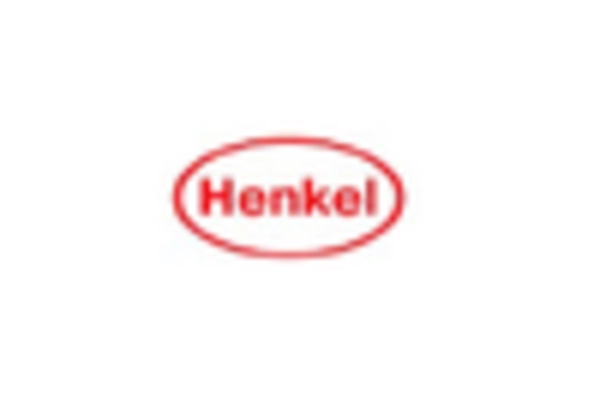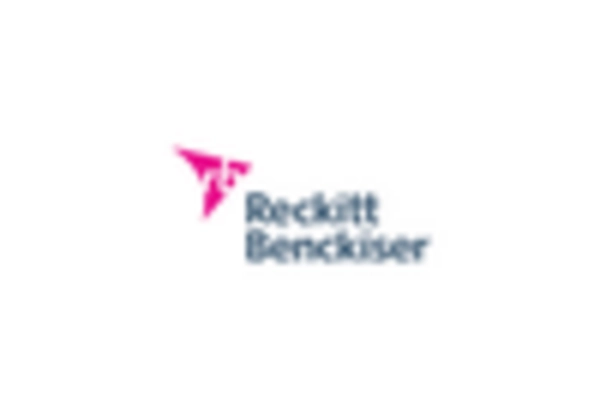Urbanization and Changing Lifestyles
Urbanization and changing lifestyles are contributing to the evolution of the Home Laundry Care Market. As more individuals migrate to urban areas, the demand for compact and efficient laundry solutions is on the rise. Urban dwellers often face space constraints, leading to a preference for multifunctional appliances that can fit into smaller living environments. This trend is reflected in the increasing popularity of washer-dryer combos and compact machines. Furthermore, the shift towards busy lifestyles necessitates quick and effective laundry solutions, prompting manufacturers to develop products that cater to these needs. The market is likely to expand as urbanization continues to influence consumer preferences.
Increased Focus on Health and Hygiene
The increased focus on health and hygiene is a significant driver in the Home Laundry Care Market. Consumers are becoming more vigilant about cleanliness, particularly in their laundry practices. This heightened awareness has led to a surge in demand for laundry products that offer antibacterial and sanitizing properties. Market data suggests that sales of such products have increased by approximately 30% in recent years, reflecting a shift in consumer priorities. Manufacturers are responding by developing specialized detergents and fabric softeners that cater to these health-conscious consumers. This trend is likely to persist as individuals continue to prioritize hygiene in their daily routines.
Growth of E-commerce and Online Retail
The growth of e-commerce and online retail is reshaping the Home Laundry Care Market. With the rise of digital shopping platforms, consumers are increasingly purchasing laundry products online, seeking convenience and a wider selection. This shift is supported by data indicating that online sales of laundry care products have surged by over 20% in recent years. Retailers are adapting to this trend by enhancing their online presence and offering exclusive deals to attract consumers. As e-commerce continues to flourish, it is expected to play a crucial role in the distribution and accessibility of laundry care products, thereby influencing market dynamics.
Rising Consumer Awareness of Sustainability
The increasing consumer awareness regarding environmental sustainability appears to be a pivotal driver in the Home Laundry Care Market. As individuals become more conscious of their ecological footprint, there is a growing demand for eco-friendly laundry products. This trend is evidenced by the rise in sales of biodegradable detergents and energy-efficient washing machines. In fact, the market for sustainable laundry products is projected to grow at a compound annual growth rate of approximately 8% over the next five years. Consumers are actively seeking products that not only clean effectively but also minimize environmental impact, thereby influencing manufacturers to innovate and adapt their offerings to meet these expectations.
Technological Advancements in Laundry Appliances
Technological advancements in laundry appliances are significantly shaping the Home Laundry Care Market. Innovations such as smart washing machines and dryers equipped with IoT capabilities are becoming increasingly prevalent. These appliances offer features like remote control, energy monitoring, and automated detergent dispensing, which enhance user convenience and efficiency. The market for smart laundry appliances is expected to witness substantial growth, with estimates suggesting a rise of over 15% in the next few years. As consumers prioritize convenience and efficiency, manufacturers are compelled to integrate advanced technologies into their products, thereby driving the overall market forward.


